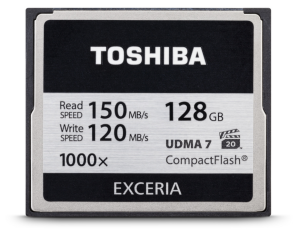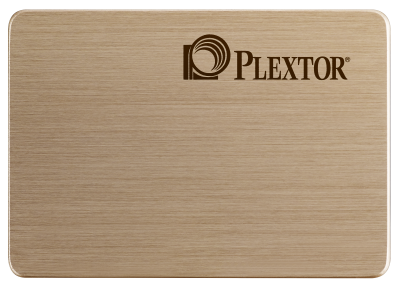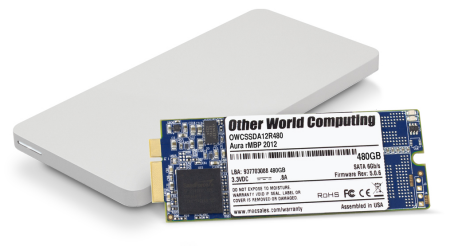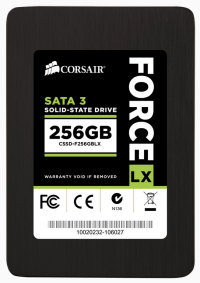- Details
- Flash Memory
Macronix, a leading provider of non-volatile memory solutions, today announced it has started production of its second generation of Single-Level Cell (SLC) NAND Flash, utilizing 36nm floating-gate technology. The 36nm floating-gate technology was developed at Macronix's state of the art 300mm fab.
The new SLC NAND family will be offered in densities from 1Gb to 8Gb in both 3.0V and 1.8V voltages, extended industrial temperature range with product longevity support. Macronix has also unveiled NAND-based MCP (Multi-Chip Package) solutions to provide customers a complete portfolio of NAND Flash products. These NAND and MCP products are targeted at a broad range of applications for the embedded and wireless markets.
As customer applications and operating systems become more sophisticated, the need for more robust and higher-density storage solutions are growing. Macronix's SLC NAND products were developed to support these market trends featuring the right balance of performance, high reliability, densities and voltages along with the longevity support from Macronix owned wafer fabs.
- Details
- Flash Memory
ADATA Technology, a leading manufacturer of high-performance DRAM modules and NAND Flash application products, today launches three new SATA 6Gb/s SSDs - the Premier Pro SP900 M.2 2242 and 2282 for Ultrabooks and desktop PCs, and Premier Pro SP910, which is suitable for gamers and video editors. No matter the computer, users can find the best solution to upgrade and experience the optimized performance of an SSD.

Premier Pro SP900 M.2 2242 & 2280 – Ideal For Ultrabooks
The Premier Pro SP900 M.2 2422 and 2280 are the latest and smallest SSDs in the market with extremely slim designs and small dimensions (22x42mm, 22x80mm), which meet the M.2 standard from Intel. They are smaller than the typical 2.5” SSD and mSATA, but come with bigger capacities, including 128GB, 256GB, and 512GB. The two SSDs are not only suitable for Ultrabooks, but also for new motherboards in the next generation of PC upgrades.
- Details
- Flash Memory
 Toshiba’s Digital Products Division (DPD), a division of Toshiba America Information Systems, Inc., today introduced the EXCERIA 1000x CompactFlash Memory Card, a versatile memory card that allows photographers to shoot and store more photos per second, enjoy smoother high-definition video, plus transfer or share images quicker and easier than ever before.
Toshiba’s Digital Products Division (DPD), a division of Toshiba America Information Systems, Inc., today introduced the EXCERIA 1000x CompactFlash Memory Card, a versatile memory card that allows photographers to shoot and store more photos per second, enjoy smoother high-definition video, plus transfer or share images quicker and easier than ever before.
Ideal for continuous burst-mode photography, Full HD (1080p) video recording, plus high-speed data transfer to other devices, the EXCERIA 1000x CompactFlash Memory Card holds up to 128GB1 of raw high-resolution images and high-definition videos. As the inventor of flash memory, Toshiba incorporates solid construction to help protect digital memories stored on the EXCERIA 1000x from every day wear and tear. Included with purchase is Toshiba’s Data Recovery Software available for download – free for one year2, as well as a five-year Standard Limited Warranty.3
“Toshiba continues to set the bar high with our premium memory card offerings like the EXCERIA 1000x CompactFlash,” said Maciek Brzeski, vice president of product marketing and development, Branded Storage Products, Toshiba Digital Products Division. “With industry-leading speed storage capacity and Toshiba-proven quality, this product is a great fit for both professional and amateur photographers.”
- Details
- Flash Memory
 Seagate Technology plc, a world leader in storage solutions, and Avago Technologies Limited, a leading semiconductor device supplier to the enterprise storage, wired, wireless and industrial end markets, today announced that they have entered into a definitive asset purchase agreement under which Seagate will acquire the assets of LSI’s Accelerated Solutions Division (“ASD”) and Flash Components Division (“FCD”) from Avago for $450 million in cash.
Seagate Technology plc, a world leader in storage solutions, and Avago Technologies Limited, a leading semiconductor device supplier to the enterprise storage, wired, wireless and industrial end markets, today announced that they have entered into a definitive asset purchase agreement under which Seagate will acquire the assets of LSI’s Accelerated Solutions Division (“ASD”) and Flash Components Division (“FCD”) from Avago for $450 million in cash.
The acquisition strengthens Seagate’s strategy to deliver a full suite of storage solutions, providing Seagate with established Enterprise PCIe flash and SSD controller capabilities to deliver solutions for the growing flash storage market. LSI’s ASD business, which is the second largest player in the PCIe flash space, offers a highly differentiated enterprise-grade PCIe flash solution focused on the high-growth cloud and hyperscale markets. LSI’s FCD business, led by its SandForce SF2000 and SF3700 controller products, is driving a multi-product roadmap to address volume markets.
“Seagate is committed to providing our customers with a complete range of storage solutions, and this acquisition will significantly enhance our flash storage offerings to supplement our existing portfolio,” said Steve Luczo, Seagate chairman and CEO. “LSI’s ASD business has the broadest PCIe flash product offering and intellectual property in the market today and the FCD business has best-in-class SSD controllers with proven support for a wide range of applications. This acquisition immediately boosts Seagate’s range and depth of flash storage capabilities today, and these teams bring to Seagate the expertise to accelerate our roadmap in this important and growing market.”
- Details
- Flash Memory
 Samsung Electronics Co., Ltd., the world leader in advanced memory technology, today announced that it has begun mass producing the industry’s first three-dimensional (3D) V-NAND flash memory using 32 vertically stacked cell layers, which is its second generation V-NAND offering.
Samsung Electronics Co., Ltd., the world leader in advanced memory technology, today announced that it has begun mass producing the industry’s first three-dimensional (3D) V-NAND flash memory using 32 vertically stacked cell layers, which is its second generation V-NAND offering.
Samsung’s 32-layer 3D V-NAND – also referred to as Vertical NAND – requires a higher level of design technology to stack the cell arrays than the previous 24-layer V-NAND, yet delivers much greater production efficiency because Samsung can use essentially the same equipment it used for production of the first generation V-NAND.
In addition, Samsung has just launched a line-up of premium SSDs based on its 2nd generation V-NAND flash memory with 128 gigabyte (GB), 256GB, 512GB and 1TB storage options. After introducing 3D V-NAND-based SSDs to data centers last year, Samsung is now extending its V-NAND SSD line-up to high-end PC applications, in expanding its market base.
- Details
- Flash Memory
 Plextor, a leading developer of high-performance digital storage technology, announces the launch of M6 Pro and PlexTurbo at Computex 2014. The show will also mark the debut of other new consumer SSDs from Plextor, who will showcase their IPC and enterprise ranges.
Plextor, a leading developer of high-performance digital storage technology, announces the launch of M6 Pro and PlexTurbo at Computex 2014. The show will also mark the debut of other new consumer SSDs from Plextor, who will showcase their IPC and enterprise ranges.
Debuting at Computex is the high-performance Plextor M6 Pro SATA SSD. With hardware operating at the maximum 6 Gbps throughput limit of the SATA interface, the M6 Pro sets new standards for reliability, stability, and performance. With guaranteed stability, the Plextor M6 Pro is the first consumer SSD from Plextor to pass its new ultra-strict enterprise-grade Zero Error standard of 400 units surviving 1008 hours (up from 500 hours). The introduction of DEVSLP mode reduces power consumption.

PlexTurbo is intelligent SSD caching software, which uses a combination of system RAM, the SSD DRAM cache, and SSD storage. It delivers additional storage speed for real-world applications, intelligently extends flash life, and prevents data loss if power is interrupted. By taking a more intelligent approach to RAM caching, the PlexTurbo is able to outperform competing software whist minimizing RAM use. PlexTurbo will initially only be available with the Plextor M6 Pro.
- Details
- Flash Memory
Today, OWC expanded its award-winning line of high-performance SSDs in capacities ranging from 120GB to 480GB for the MacBook Air 2010-2012 and the MacBook Pro with Retina display 2012-2013. The new upgrade options deliver even greater affordability and are backed by the support and expertise OWC is known for around the world.

Aura and Aura Pro SSD: The Easy Drive Upgrade for Air and Retina
Aura and Aura Pro SSD (Flash) drive upgrades provide an easy and economical path versus buying a new laptop to achieve greater performance and/or internal drive capacity. Repurpose the original factory drive with a sleek, award-winning Envoy/Envoy Pro external enclosure included with complete DIY Kits.
- Details
- Flash Memory
 Corsair, a worldwide designer of high-performance components to the PC hardware market, today announced the release of the Force Series LX solid-state drives (SSD). Available in either 256 GB or 128 GB capacities, Force Series LX SSDs bring the amazing performance benefits of an SSD to new lower price point - making it easier than ever to move your PC into the SSD fast lane.
Corsair, a worldwide designer of high-performance components to the PC hardware market, today announced the release of the Force Series LX solid-state drives (SSD). Available in either 256 GB or 128 GB capacities, Force Series LX SSDs bring the amazing performance benefits of an SSD to new lower price point - making it easier than ever to move your PC into the SSD fast lane.
The speedy benefits of solid-state drives have long attracted PC enthusiasts, but high prices may have put off some users from making the switch to this faster storage technology. In response to this dilemma, Corsair is bringing all the perks of an SSD to a new, even more budget-friendly price point so everyone can feel the rush. With the Force LX 256 GB costing $129.99 and the 128 GB just $74.99, there's never been a better time to upgrade to faster SSD technology.
Powered by a Silicon Motion SSD controller, the Force Series LX SSDs offer fantastic performance up to 10 times faster than that of a conventional spinning-disk hard drive. Force LX's SATA 3 file transfer speeds of up to 560 MB/sec read and 300 MB/sec write can massively improve system performance. Operating system start-up and application load times accelerate to mere seconds, anti-virus scans complete far faster, and navigating your PC's files feels much more responsive thanks to near-instant access times.
- Details
- Flash Memory
Plextor, a leading developer of high performance digital storage technology, launches the M6e M.2 PCIe Gen2 x2 SSD, an ultra-fast 2280 (80.0mm × 22.0mm), M.2 PCIe form factor SSD designed to deliver high performance storage to modern gaming notebooks and the new generation of M.2-compatible motherboards.

The M6e M.2 PCIe is the drive at the heart of Plextor's multi-award winning PCIe gaming SSD. With its release as a stand-alone product, consumers with M.2 PCIe slots gain access to an ultra-fast SSD with maximum sequential read speeds of 770 MB/sec and sequential write speeds of 625MB/sec. Random 4k read speeds reach 105K, and random write speeds attain 100K, IOPS. The M6e range gives gamers RAID-like performance without the space requirements or inconvenience of setting up a RAID array.
Packed into the light, extremely compact M6e M.2 PCIe is a multi-core Marvell PCIe 9183 controller, a fast onboard DDR DRAM cache, and high quality Toshiba Toggle NAND flash memory, with Plextor's own in-house produced custom firmware providing stability and efficiency.
- Details
- Flash Memory
Marvell today announced its game-changing fifth generation serial advanced technology attachment (SATA 6Gb/s) solid-state drive (SSD) controller. The industry-leading Marvell 88SS1074 SATA SSD controller deploys Marvell’s third generation NANDEdge™ error-correcting, low-density parity check (LDPC) technology, facilitating use of 15nm triple-level cell (TLC) NAND flash in client and enterprise SSDs. The advanced SATA SSD controller significantly improves total storage system cost and delivers unparalleled performance with lower power consumption.
"As the inventor of a wide range of leading storage technologies, we are very proud of our innovation, leadership, and contribution to the advancement the of storage industry. I am thrilled to see our highly differentiated and advanced LDPC technology continue to raise the performance bar of robust storage solutions. I believe our efforts will enable top global OEMs and partners to accelerate the deployment of the fast growing SSD market," said Weili Dai, President and Co-Founder of Marvell. "I am very thankful for our dedicated and innovative engineering teams for once again delivering game-changer storage solutions. At Marvell, it is our pride and long term commitment to invest in the most innovative technologies to serve the storage industry and offer the most reliable and secure cloud solutions. Our mission is to drive innovation for better lives for all in the new era of ‘Smart Life and Smart Lifestyle’."
As process geometries continue to shrink and NAND flash technology migrates from MLC (2-bit) to TLC (3-bit per cell), high reliability, uncompromised performance and low power consumption are critical for the widespread adoption of SSD. The game-changing Marvell 88SS1074 delivers all of these benefits to SSD manufacturers, enabling the next generation of storage systems.

